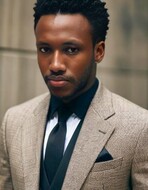
Reality is a complex and multifaceted concept that has been debated and explored by philosophers, scientists, and scholars across various disciplines for centuries. At its core, reality refers to the state of things as they actually exist, rather than as they may appear or be perceived. However, the question of what constitutes reality and how it can be manipulated is a subject of ongoing debate and investigation.
One way to approach the concept of reality is through the lens of perception. Our experiences and interactions with the world around us shape our understanding of reality, and our individual perspectives and beliefs can influence how we interpret and interact with reality. This means that reality can be seen as a subjective construct, shaped by personal experiences, cultural norms, and historical context.
Another way to manipulate reality is through language and communication. Language has the power to shape our perceptions and beliefs, and can be used to influence how others perceive and understand reality. Through language, we can convey our thoughts, ideas, and experiences, and can also use language to persuade, manipulate, or deceive others. This highlights the idea that reality is not always an objective truth, but can be influenced by the way we communicate and interact with each other.
A third way to manipulate reality is through technology and virtual environments. Advances in technology have enabled us to create increasingly realistic virtual environments, which can mimic aspects of reality or even create entirely new realities. Virtual reality (VR) and augmented reality (AR) technologies allow users to immerse themselves in digital worlds that can simulate real-world experiences or create entirely new ones. This raises questions about the boundaries between reality and fantasy, and whether it is ethical to manipulate reality in this way.
Finally, reality can also be manipulated through art and imagination. Art has long been recognized as a way to express and explore different aspects of human experience, including emotions, ideas, and perceptions. Through art, artists can create alternate realities or challenge existing ones, inviting viewers to see the world in new and different ways. Imagination also plays a key role in shaping reality, allowing us to envision and create new possibilities and alternatives.
In conclusion, reality is a complex and multifaceted concept that can be manipulated in a variety of ways. Perception, language, technology, and art all play a role in shaping our understanding of reality, and each offers unique opportunities for manipulation and interpretation. Ultimately, the concept of reality highlights the dynamic and constantly evolving nature of human experience and understanding.















